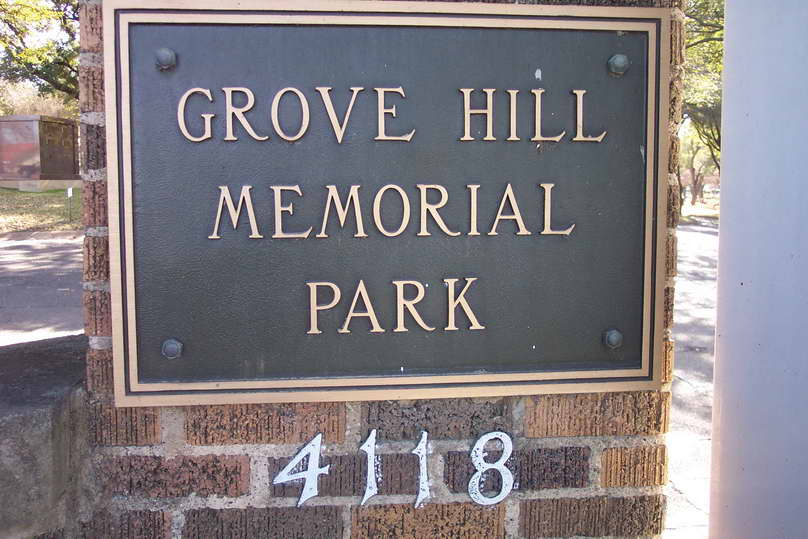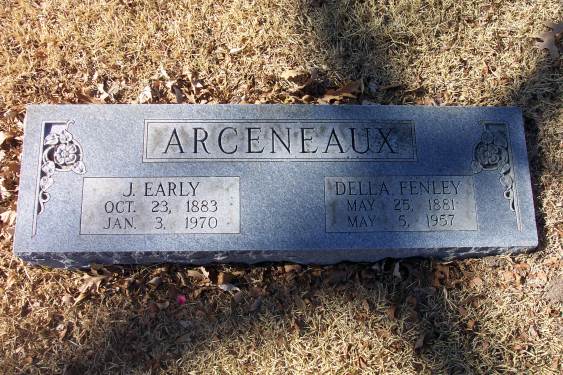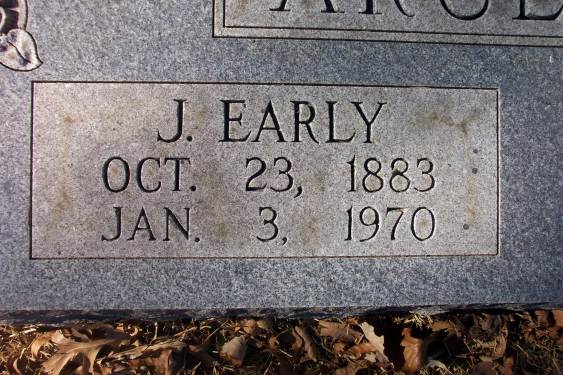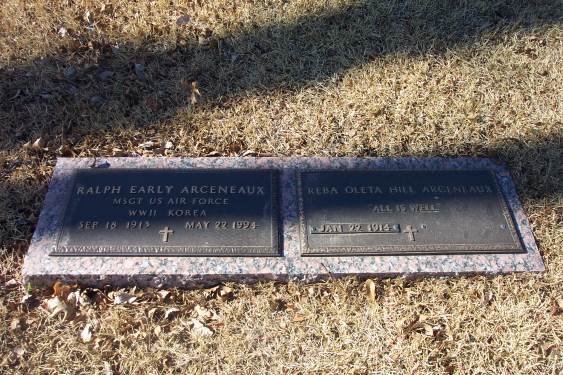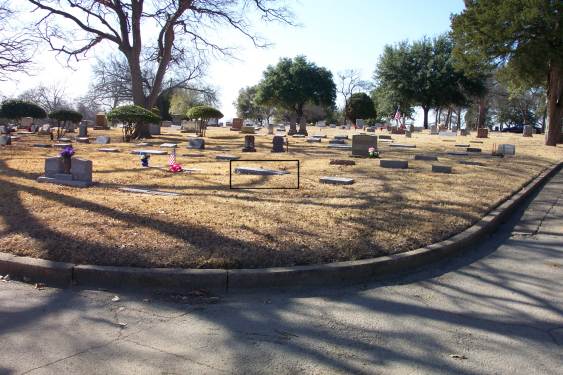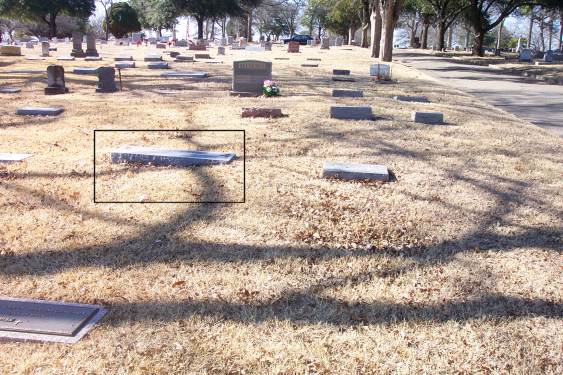John Early Arceneaux
1883-1970
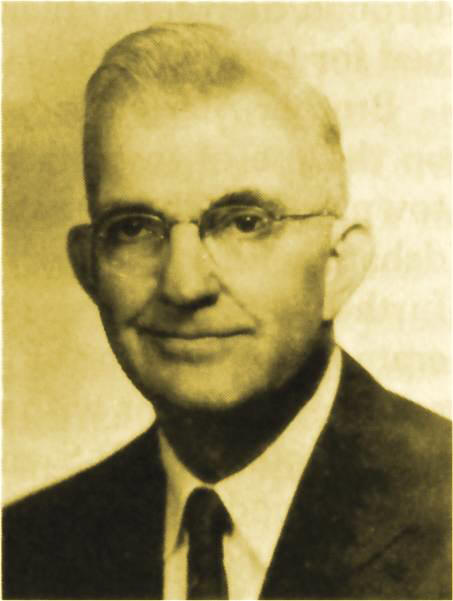
The Life Of John Early Arceneaux
John Early Arceneaux was born October 23, 1883 in Dennison, Texas, of Joseph and Amanda S. Darby Arceneaux. He was the youngest of six children and the only son. His father was a farmer, carpenter, painter, freighter, and Early worked at all these jobs as he grew up. His father was a Confederate veteran, who had been reared in Louisiana in the most rigid traditions of the Roman Catholic religion. His fighting in the Civil War did not last long for he was soon captured and spent twenty-one months in the custody of the Union forces. Following the war he went to Auburn, Kentucky, where he met Amanda Darby, who became the mother of his children, and who no doubt played an important role in leading him out of the darkness of the religious error in which he had been reared. We do not have the date of their move from Kentucky to Texas, but when Early was quite small the family moved to Wilbarger county, where Early had his first schooling in Vernon. When he was eight years old the family moved on west to Tulia in Swisher county, where he attended school for a part of one year when they moved to Amarillo for a short time, but soon returned to Tulia. His total attendance in school in his first fifteen years did not total more than two years, but he did learn to read and write, and early developed a great interest in reading, which he retained to the end of his life. By the age of fourteen he had read the Bible through eight times. The family subscribed to the Firm Foundation, and Early became an avid reader of that periodical, always reading A. McGary's editorial first, but he read all of it. He made a special trip to town each Saturday to get the paper, always being anxious to see it. From the paper he learned to successfully meet the Baptist preachers in his neighborhood in Bible discussions, and first developed his keen interest in debating which played such an important role in his life. But there was no New Testament church meeting in the community where they lived near Tulia. In 1896, when he was thirteen years old, he went to nearby Lockney to visit his sister. While there he became acquainted with S.W. Smith, one of the founders of the Lockney Christian College, and a very capable gospel preacher. Under his teaching Early obeyed the gospel and determined that he would enter Lockney Christian College, though he had such a very small amount of schooling. (Lockney, at the first, did not offer college work but only elementary and secondary work.) Before going to Lockney he confided his determination to be a gospel preacher to an atheist friend. This "friend" tried to dissuade him, saying he should get into something "worthwhile," such as law, medicine, or some other honorable profession. He told him that he would only find disappointment in preaching, for he said "there is absolutely nothing to that old argument that the Christian has all to gain and nothing to lose. You think that after death you will sit in the shade by the river wearing a crown and playing on a harp, but you will be sadly disappointed when it doesn't happen." Brother Arceneaux replied, "Is it possible for a man to believe until he dies?" "Yes," the atheist replied. "And when he dies, then he knows nothing at all?" "Right." "Then if he is happy in his belief while he lives, and knows nothing at all after he dies, just when will he be disappointed?"
Brother Louie M. White has written a very interesting story of his life and tells about his enrollment in Lockney Christian College at the age of fifteen. He quotes B.E. Smith, of Uvalde, Texas as saying: "He lived in a small town near Lockney and when he went to enroll in the school his father took him to school in the wagon with a yearling to pay his tuition. He washed and ironed his own clothes ... and wore his shirt collars turned up under his ears instead of pressed down." Lester Honea, a class mate in Lockney, says: "Well do I remember that first morning when he entered Lockney Christian College. This fifteen-year-old lad was called upon to lead prayer in the chapel. A more earnest, devoted, fervent prayer could not have been uttered ... Those were pioneer days. The road was hard and rough. Brother Arceneaux worked his way through school. Lived a wonderful life of sacrifice and service."
In school he developed into a very fine debater, winning by far the major part of the many debates in which he engaged. Luther Norman, a close friend from Lockney days, and a faithful gospel preacher, spoke of his debating ability in the most favorable terms. This ability in debate was used by him across the years to the advantage of the truth and the destruction of error. His great ability in this important field made him known throughout the brotherhood, for he met every kind of religious error to be found in his area, and did so to the advantage of Truth.
After five sessions in Lockney he went to Nashville, Tennessee where he attended the Nashville Bible School (now known as David Lipscomb College) one year. (1903-1904) He later attended Texas Christian University in Ft. Worth, Texas.
On February 18, 1900, at the age of sixteen, he preached his first sermon in the Love school house near Tulia, Texas. However, due to his debating experience he was not without experience as a public speaker when he preached this first sermon. After this "first sermon" he never quit preaching, but was soon busy in meetings and Sunday appointments while still in school in Lockney. He tells of Brother O.H. McGavock (see The Christian Worker, December, 1977) a gospel preacher in Lockney for whom he worked part-time. In May, 1900, Brother McGavock began a meeting in Plainview, twenty miles west of Lockney. He got sick, or said he was sick and insisted that I fill in for him one night, which I did. He still wasn't feeling well and I finished the meeting." He then tells of other meetings that followed.
His preaching had taken him to Uvalde in South Texas where he met Miss Della Fenley, daughter of Demp and Martha Fenley. On September 6, 1904 they were united in marriage by Luther Norman, that faithful friend and fellow student from Lockney. The following children were born to them: a daughter who died at six weeks of age; Mary Evelyn Gage, Ralph E. Arceneaux, Margaret Louise Chenault, and Elaine Brock. Ralph has spent many years preaching the gospel, but now is also engaged in secular work while continuing to serve The Lord.
While in Lockney Brother Arceneaux became acquainted with Walter Crowson from Florida. At the close of school in 1901, at Crowson's insistence, he went to Florida, going by ship from Galveston. In Florida he preached in several different places, including Clearwater and Largo, where he was instrumental in planting The Cause. The cause of New Testament Christianity was new to that section, the reception was good, and he baptized a large number of people. He returned to Lockney for the next school term, and then back to Florida again the next summer; but this time he didn't want another boat ride, and so went by rail. This time he found more opposition, but his debating ability helped and he came through in good shape, even though the lie that he had been drunk was told in one place. Luther Norman says of those days: "I thought he was just about the best preacher I ever heard. He was just a boy, but as old Brother "Weeping Joe" Harding used to say, `He wore a man's hat.'" In 1903 when school was out at Lockney he and Luther Norman had acquired a tent and set out to hold some meetings in it. High winds and rains often made much trouble for their tent, but they sewed it up and got it into service again and had some good meetings. It was in this summer, as Brother Norman was leading the singing for Early, that he began to preach, sometimes taking over the pulpit for the morning service. By the time he married in 1904 "the boy preacher who wore a man's hat" had gained a good reputation over a wide area of the brotherhood. In 1911, when Sister C.R. Nichol published her directory of Southwestern preachers, he was listed and at that time had held 120 gospel meetings, baptized about six hundred people, and had had three debates.
G.H.P. Showalter was head of the Lockney school for four of the years Brother Arceneaux was a student there. After Brother Showalter acquired the Firm Foundation, Brother Arceneaux was made one of the editors, in which capacity he served well for many years, writing very effectively on the religious questions of his time. He had begun to do local work, working with the Southside church in Ft. Worth at the time he joined Brother Showalter and the Firm Foundation. His debating also continued, and one he especially enjoyed was with J.A. Curry, a Millennial Dawn (Jehovah Witness) preacher. He had but very little time to prepare for this debate, and actually felt he had not done his best in it and tried for some years to get Curry to repeat it, but Curry didn't want any more debating with Arceneaux. He felt much better about it later when one of the brethren told him: "Don't feel bad about it, you cleared that theory out of this whole section of country." (Leakey, in South Texas) After their wedding in 1904 the young couple went to Lockney, where he was to be a part of the faculty at a salary of $30. per month. Of course his preaching added some to that. Before going to Lockney he had arranged with Jim Norman, a brother of his good friend, Luther Norman, to build him a house in Lockney. When they arrived they had a nice four room house awaiting them. In addition to some secular subjects, he taught Bible. At the close of school in 1905 they returned to Uvalde, a twenty-four day trip in their wagon. In Uvalde he continued preaching and converted many people including two brothers who were Baptist preachers, and his father-in-law, Demps Fenley who was sixty-one years old. Fenley became a pillar in The Church. In these years he did much preaching by Sunday appointment, held many meetings, and continued debating as opportunity came. He also did much work in San Antonio, helping to get The Lord's work off to a good start. There he stirred up the Mormons, and this resulted in his first debate with them. He had time to prepare for it, and he actually knew the Book of Mormon better than did the Mormon. Again, his opponent could not be induced to meet him again. He had his second debate with the Mormons in Salt Lake City about 1911. About 1907 or '08 he moved to Sabinal, Texas to teach Bible in the Christian school he had helped to start there. Through his influence, G.H.P. Showalter was induced to head the school in Sabinal. As the years passed his influence increased until many brethren, including many preachers, regarded his word on any Biblical subject as "law and gospel," or almost so.
His first years of preaching had been by Sunday appointment and in gospel meetings, but in 1910 he was in Ft. Worth for his first local work with what is now the Southside church. There was only one other congregation, Central, in Ft. Worth at the time, and J. S. Dunn was preaching there. They worked together in tent meetings in various parts of the city, and strengthened The Cause much. These tent meetings would often continue for several weeks. These efforts resulted in the establishment of the Glenwood church, later known as Vickery Blvd. These years brought many debates with the denominations in Texas. One was with Tom J. Beckham, a Methodist at Thornton, Texas. The debate closed on a Friday night and the following Monday he baptized ten people there. A year later Horace W. Busby baptized forty-eight people in a meeting there. (Of course we have lots of brethren who will assure one that "debates do no good!")
He moved from Ft. Worth to Waco, working with what is now the Columbus Avenue church. From Waco he went to Houston, and with G.H. Dunn repeated the type of evangelistic effort that had been so effective in Ft. Worth. The work in Houston grew, even as it had in Ft. Worth. In 1920 he moved to Wichita Falls to work with what is now the Tenth and Broad Street Church. When he went there the brethren had a small frame house on the "wrong side of the tracks." He helped get them out of that and into the good building on Tenth Street from which they moved to their present location. Through the years he always encouraged and helped the brethren to get better meeting houses, often writing on it in the Firm Foundation. In 1922 he moved to Killeen with a rather unusual arrangement. He was to be supported for full time work, but was to spend seven months of each year in mission work. Several new congregations were established. From Killeen he returned to San Antonio to work with the South Flores church. In 1927 he returned to Lockney, where some trouble had arisen in The Church. He was able to help them get that settled and build a new meeting house.
The depression of the thirties hurt him as well as all other people, but perhaps the preachers suffered most. His work took him to Dallas with the Peak and Eastside church; to New London in East Texas; to Billings, Montana; to Louisville, Ky.; Lufkin and Lovelady in Texas. In several of these places he returned for a second period of local work. In addition to his work with the Firm Foundation, he published several pamphlets, including: "Mormonism, a System of Infidelity," "On J.N. Cowan's Trail," and a number of things about the Holy Spirit. Much of this work is perhaps still available from the Firm Foundation.
He continued to preach to the end of life, but at about age eighty, he began to have mild strokes. In 1949 he had become seriously ill, and was said to have cancer that would take him in a short time. He did nothing about it, and apparently it went away. His last years were spent in East Texas where he was kept busy with preaching and special lectures.
In 1957 he had lost his beloved Della after a very trying illness. He was told that she would have to be placed in a nursing home, but he wouldn't allow that, taking care of her himself, with the help of Christian friends. Finally at the end she did have to go to the hospital. The service was conducted by his life-long friend and brother, C. R. Nichol. He continued alone until 1970 when he was living in a retirement hotel in Waco. One day the wind was very high and he was out on the street. He was blown down and his hip was broken. He was soon released from his suffering. Wallace Gooch and Luther Norman conducted the service in Waco, with Logan Buchanan and Melvin Wise taking care of the grave side rites in Dallas, where he sleeps by his companion in the Grove Hill cemetery.
A classmate from Lockney wrote of him: "Brother Arceneaux is staunch and true, dedicated to the works of his God. His influence will continue so long as time shall last. A noble example to later generations. May his life of usefulness be spared many days yet, is our most fervent prayer." One cannot continue here forever, but the classmate spoke truly of his influence. The faithful will see him again!
—Gospel Preachers Of Yesteryear, Lloyd L. Smith, pages 4-10
![]()
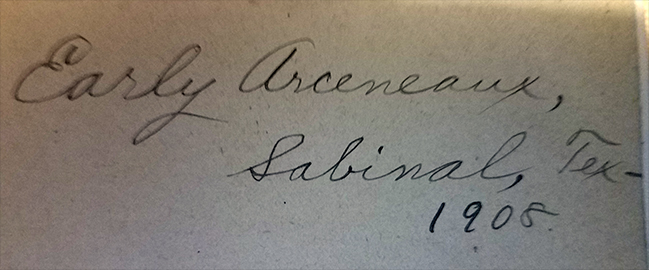
Early Arceneaux, Sabinal, Texas, 1908 - Signature
Thanks to Mark McWhorter for sending photo of signature - 9.22.2019
![]()
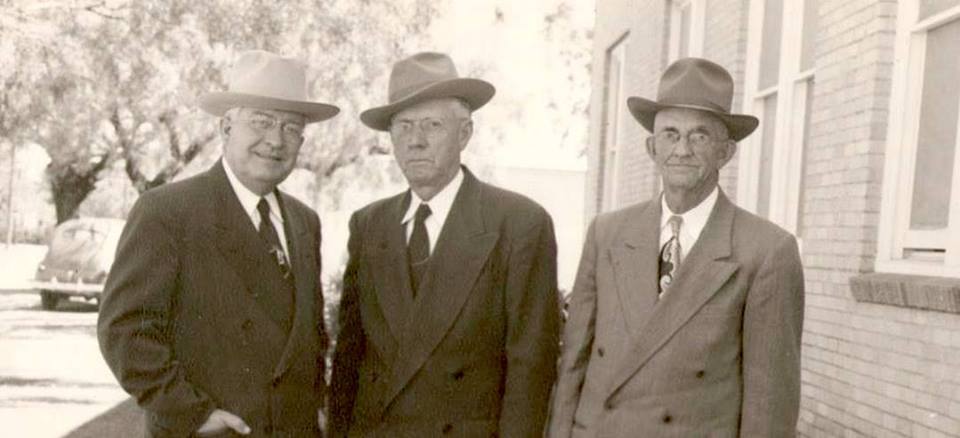
Left to right: Foy E. Wallace, Jr., Austin Taylor, J. Early Arceneaux
This photograph was taken in Uvalde, Texas late in 1951 by Swofford's Photo Service.
A cropped version the photo was published by the Firm Foundation of 11 December 1951 on page nine.
The caption read, "Three Great Gospel Workers."
Photo courtesy of Terry J. Gardner, 10.01.2014
![]()
Directions To The Grave Of Early Arceneaux
Early Arceneaux is buried in the Grove Hill Memorial Park Cemetery in Dallas, Texas. From downtown Dallas head east on I-30 and take Exit 49B. It will enter Lawnview Ave. The cemetery will be in front of you. Go left on Lawnview and then turn right on Samuell Blvd. Enter the cemetery and up the hill. The grave is located near the rear of the cemetery. The Arceneaux plot is at the corner of Section 37, and across from Section 44. Perhaps it would be wise to visit the cemetery office and get a map of the cemetery. They are available for the asking. While in the cemetery, be sure to visit another grave of a gospel preacher of yesteryear, James S. Dunn.
GPS Coordinates
32° 47' 365" N x 96° 43' 193" W
or D.d. 32.789443,-96.719911
22 Ft. Acc. / Grave Faces East
Section 37 Lot 50 Space 9
View Larger Map
![]()
ARCENEAUX
J. Early - Oct. 23, 1883 - Jan. 3, 1970
Della Fenley - May 25, 1881 - May 5, 1957
Ralph Early Arceneaux - MSGT US Air Force - WWII - Korea - Sept. 18,
1913-May 22, 1994
Reba Oleta Hill Arceneaux - All Is Well - Jan. 22, 1914 -
(Ralph E. Arceneaux, Son Of J.E.A., Was Also A Gospel Preacher)
Looking Back Toward The Center Of The Cemetery
![]()
